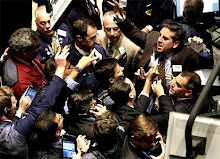Well I guess I got stopped out of this move I am sitting on last friday. As I was expecting while long the QQQ an upward tick in the market solely based on the Fiscal cliff talks would get a compromise and that we were so close the the 78 retracement I believe new highs were in the making.
Since the week has started we have had two trend days up back to back which is extremely rare and more than likely can be contributed to the Fiscal Cliff talks. Lets see what shakes but as of now we are news driven mode again. I would not be long bonds or gold here but who really knows what the politicians will finally agree to.
Wednesday, December 19, 2012
How Volkswagen is run like no other car company
Any efficiency expert would tell you that VW is too vertically integrated, has too much overlap and duplication, and has way too many brands. VW, meanwhile, keeps growing bigger, stronger and more profitable.
The give-away that Volkswagen Group is run differently from every other car company lies with the fact that it employs a staggering 549,300 people globally. Fortune magazine lists it as the eighth largest employer in the world, behind giants such as Walmart and the Chinese post office. VW has almost as many full-time employees as General Motors (213,000), Ford (164,000) and Fiat-Chrysler (197,000) put together. While those three behemoths collectively built 19 million vehicles last year, VW "only" built 8.5 million.
Efficiency experts will tell you that on an employee-per-vehicle basis, Volkswagen looks hopelessly inefficient. Financial analysts will tell you that the company woefully trails its competitors on a revenue-per-employee basis. But VW will tell you that it makes more money than any other automaker – by far.
While VW's stated goal is to become the world's largest car company by 2018, it's already there if you measure it by revenue and profits. Its revenue of $200 billion is greater than every other OEM. Last year's operating profit of $14 billion is the kind of performance you expect from Big Oil companies, not automakers.
Last year's operating profit of $14 billion is the kind of performance you expect from Big Oil companies, not automakers.
How can this be possible? How can VW look so uncompetitive from a productivity standpoint, yet out-earn all of its competitors?
Ah, that's the magic of VW's corporate structure. While business schools teach future MBAs that centralized operations can cut cost by eliminating overlapping work and duplication, VW maintains strongly decentralized operations with lots of overlap. While business schools preach the benefits of outsourcing to cut cost, VW is very vertically integrated.
Anytime a car company buys a component from a supplier, that supplier has to charge a profit. If an automaker can make those components in-house, it gets to keep that profit. VW is building a lot of components in-house.
To dominate you need multiple brands, and VW has more than anyone else.
If an automaker truly wants to dominate the market, it has to accept a certain amount of overlap and duplication. It just goes with the territory. To dominate you need multiple brands, and VW has more than anyone else, which admittedly overlap at the edges. But to VW they are more than just brands.
All of VW's brands (VW, Audi, Seat, Skoda, Bentley, Lamborghini, Ducati, Porsche, Bugatti, MAN, Scania, and VW Commercial) are treated as stand-alone companies. They have their own boards of directors, their own profit & loss statements, and their own annual reports. They even have their own separate design, engineering and manufacturing facilities. Yes, they do share some platforms and powertrains and purchasing, but other than that they're on their own.
Back when GM was great, it too was a holding company that owned nine stand-alone car companies.
Back when GM was great, it too was a holding company that owned nine stand-alone car companies (Chevrolet, Pontiac, Buick, Cadillac, Oldsmobile, GMC, Opel, Vauxhall, Holden). In the 1960s GM had over 700,000 employees, was very vertically integrated, and was the most profitable corporation in the world.
GM's vaunted president and chairman, Alfred Sloan, who led the company from 1923 to 1956, always fought against centralized operations. He kept GM very decentralized until the day he retired. Then the MBAs got ahold of it. In the 1960s they started implementing "efficiencies" and "synergies" and it's been downhill ever since. Their top-down, command-and-control system of management simply choked the company. It still does.
Meanwhile, VW is operating right out of the Sloan handbook. And its corporate structure gives it an enormous competitive advantage. No matter how much VW's competitors try to rationalize, cut cost, outsource, or partner up with one another, they're never going to overcome VW's advantage. I wonder how many of VW's competitors are even aware of what they're up against.
Subscribe to:
Comments (Atom)

